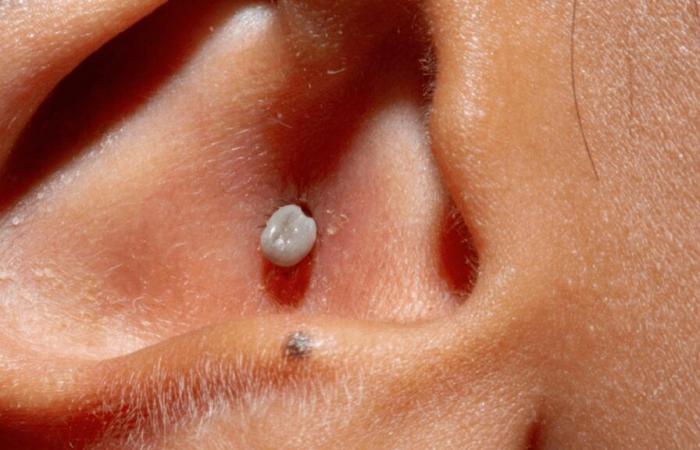The 21-year-old woman presented with sudden ear pain, hearing loss and dizziness. Symptoms caused by a dead tick inside his ear canal.
Written on 17/01/2025
Allodocteurs – Newen France
Knowing how to react properly after a tick bite helps limit the risk of developing Lyme borreliosis (also called Lyme disease), but also other diseases transmitted by ticks. Normally, a tick remover does the job to get rid of them. But in certain situations, these parasites can be particularly complex to remove. A woman from Nepal recently experienced this, as reported Live Science.
Aged 21, the latter presented to the emergency room of the local hospital for multiple disabling symptoms. For several days, the young woman had suffered from severe pain in her right ear canal as well as progressive loss of hearing in the same ear, repeated dizziness, nausea and tinnitus.
Also read: What is Powassan, this deadly virus transmitted by ticks?
A foreign body responsible for the symptoms
In a case study published on January 7, 2024 in the journal Journal of Medical Case Reportsthe medical team who took care of the patient indicates that these symptoms appeared suddenly about a week before her arrival at the hospital. During the examination, doctors observed that his ear canal was indeed inflamed. A battery of tests can also reveal hearing loss.severe to profound“only localized in the right ear.
Scientists logically seek to determine the origin of these symptoms. They quickly discovered that a foreign body located in the patient’s external ear canal was most likely the cause of her ailments. What was their surprise when they discovered that this foreign body was in reality a dead tick. These types of situations, although rare, can have serious health consequences, explain the researchers behind the case study.
Serious complications caused by tick saliva
“This case highlights the importance of prompt clinical assessment and treatment in cases of ear tick infestation“, they emphasize. They add that this type of infestation can lead to serious complications, including permanent hearing loss and facial paralysis, caused by tick saliva which contains toxins capable of damaging nerves. According to the team of researchers, the pain felt by the patient was probably caused, not by the tick itself, but by an enzyme present in the parasite’s saliva, responsible for inflammation.
The doctors were finally able to “carefully remove” the dead tick from the young woman’s ear canal. She was then prescribed anti-inflammatory medications to alleviate the pain. One month after the medical intervention, all of the patient’s symptoms had disappeared.
To protect yourself from these symptoms and avoid contracting other diseases, such as babesiosis, Lyme disease or tularemia, the best way is to protect yourself from tick bites. The National Health Safety Agency (ANSES) reminds you of the actions to adopt to deal with this mite:
- Wear closed shoes, long, light-colored clothing during nature walks so you can easily identify the presence of ticks on your clothes. You can increase protection by tucking the bottom of your pants into your shoes;
- Use specific repellent products in spray or stick. They must be applied several times a day to all parts of the body that are not protected by clothing. Favor those with a marketing authorization and respect their conditions of use;
- Avoid walking among tall grassbushes and low branches and favor marked paths;
- After a walk in the forest or rural area, a visual examination of the skin is necessary to check that there is no tick bite.







